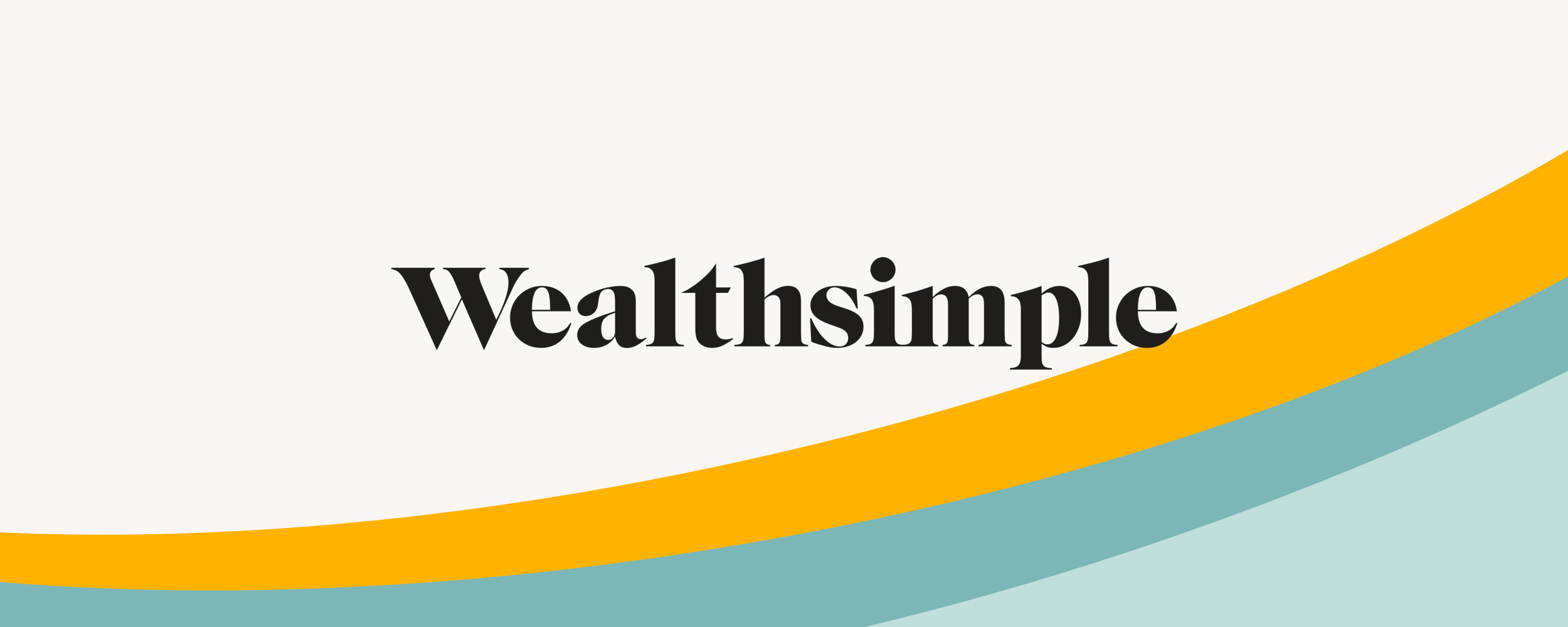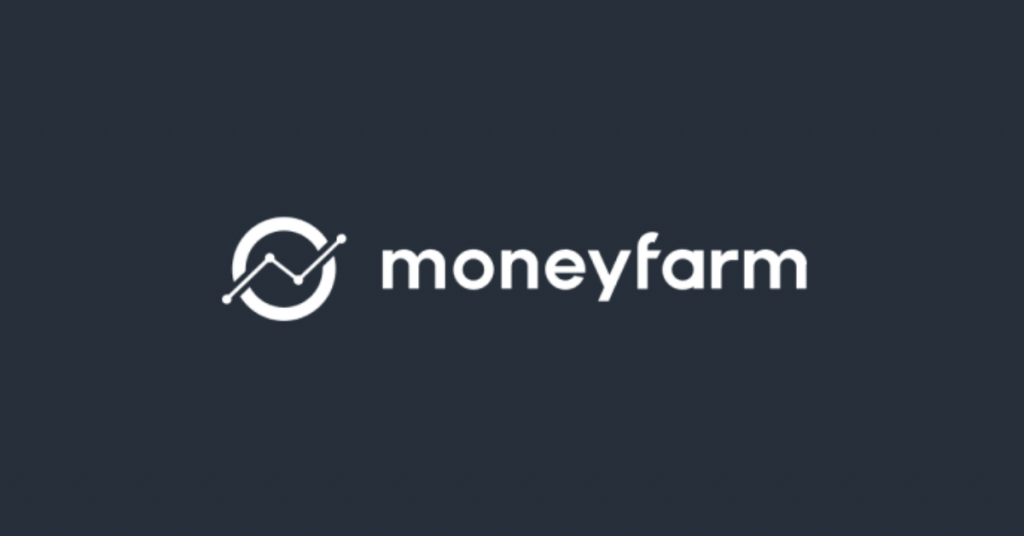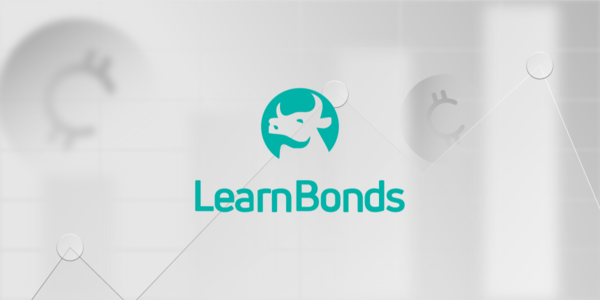7 Best Stocks and Shares ISAs for 2021
A stocks and shares ISA is a great way to invest in the stock market completely tax-free. Each taxpayer has an annual allowance allowing them to invest up to £20,000 per tax year.
A resident UK taxpayer has an £20,000 annual tax-free allowance. The allowance is used to invest through a stocks and shares ISA. Think of an ISA as a wrapper or shopping basket in which you hold your assets. Remember, investments can go up and down in value and there is always the possibility that you may not get back all that you initially invest.
There are plenty of providers offering thousands of shares and funds to choose from, as well as those with more restricted choice, but often with lower management charges. Best of all, you don’t pay any income or capital gains tax whatsoever on your gains, or tax on the dividend income you earn from shares. There is no limit to the size of the gains that can be made tax-free.
There are many stocks and shares ISA providers out there, so finding the right account for you isn’t always easy. That’s where we come in.
In this guide, we cover the essential how-tos and features you need to know before opening a stocks and shares ISA, and we also reveal the best stocks and shares ISA providers for 2021.
-
-
What is a Stocks and Shares ISA? A Stocks and Shares ISA is a tax-efficient individual savings account that allows you to invest in stocks and shares. Such an investment counts as part of your £20,000 tax-free annual ISA allowance.
What are Stocks and Share ISA’s?

The stocks and shares ISA is a flexible and versatile investment vehicle. It was first introduced in April 1999, consisting of two versions: a stocks and shares ISA and a Cash ISA. Junior ISAs for children aged 16 but under 18 were introduced in 2011. That was followed by the Help-To-Buy ISA in 2015, but it scrapped last year. Finally, in 2017 the number of ISA types was further expanded with the launch of the Lifetime ISA and the Innovative Finance ISA. So, excluding the Junior ISA, there are today four types of ISA available.
The proliferation of ISA types has led to some criticism that it creates unnecessary complexity for consumers and savers.
However, over the long-term equities have outperformed all other asset classes, so the stocks and shares SA has become a popular choice and is the subject of this guide.
The £20,000 tax-free annual allowance can be split across some or all four types of ISA account or put into just one.
If you want to move your funds out of one of the non stocks and shares ISA accounts you must fill out a transfer form available from your chosen ISA provider.
It is important that you do not move cash out of an ISA account (including the proceeds of liquidated shares), it loses its tax-free status. Always use the transfer form to shift funds between different types of ISA accounts.
So, if after reading this guide you are minded to consider channeling funds into a stocks and shares ISA, you can easily initiate a transfer, for example, from your cash ISA into a stocks and shares ISA.
You can have as many accounts as you like of the same type providing they are with the same provider.
You cannot have more than one Isa provider of the same type at any one time, so it is important to make the right choice. This rule applies to all subscriptions (amounts paid into an ISA) for a given year, but you can change provider each year.
As a consequence, if for example you are transferring from one stock and shares ISA provider to another, you must move all of the holdings. There are no restrictions on moving funds between accounts held with different ISA providers from past years.
Aside from the possibility of higher returns (and higher risk) a stocks and shares ISA offers, there is also no tax payable on the dividend income from your shares.
But in a highly competitive landscape where every stocks and shares ISA provider claims to be the best, which one will suit your risk profile, circumstances and goals best?
To help you decide, here are our seven top picks. But first we start by looking at why you might want to consider opening stocks and shares ISA, and the criteria we have used to compile our list.
Best stocks and shares ISAs: Reviewer’s choice
REVIEWERS CHOICE
Account Type
Stocks and Shares ISAs
Fees
£5.95-£11.95 per trade
Minimum Investment
£25 monthly, £100 lump sum
Product Details
- Investments can go down as well as up so you may get back less than you invest.
Key Facts
- Minimum investment of £100
- Thousands of shares and funds
- Ready-made portfolios
Pros
- Pick your own investments or choose a ready-made portfolio
- Investment ideas and research from expert analysts
- Manage via website, HL app or Bristol-based helpdesk
- No HL fee to transfer ISAs online
- FTSE 100 Company
Cons
- Less bonds than some other providers
Product Details
- The annual management fee for the fully managed portfolios starts from 0.75% for investments below £100,000 and 0.35% for those that tear above this level. Fixed allocations on the other hand are charged 0.45% for investments below £100,000 and 0.25% for those above this level.
Key Facts
- Feature non-managed fixed allocation portfolios
- Diversified portfolio drawn from low cost ETFs
- Perfect for medium to high income traders
Pros
- Offers you a choice between managed and self-managed funds
- Relatively inexpensive
- Has a powerful investment portfolio creation tool
Cons
- Limited research and analytical tools
Account Type
Stocks and Shares ISAs
Fees
0.2% per trade
Minimum Investment
No minimum
Visit NowRating
Product Details
- WealthSimple combines technology and human skills to come up with a highly customized portfolio designed for your specific needs
Key Facts
- Customized portfolio
- Automatic re-balancing of portfolio
- Human investment advice
Pros
- 100% passive revenue generating stream
- Their portfolio rebalancing feature minimizes your risk exposure
- Goal oriented investment plans
Cons
- You have no control of when and where your funds are invested
Product Details
- You can access ready made investment solutions straight from their certified investors
Key Facts
- Transparent fee structure
- Access your ISA online or on their app 24/7
- Access tools to find your best investment solutions
Pros
- Well adapted for both beginners and experienced investors
- Affordable minimum investment amounts
- Diversified investment options
Cons
- Considerably expensive compared to most robo-advisers
Product Details
- The quarterly administration fee stands at £22.50 while the monthly charge for buying and selling different investments starts at £10 per month and drops down to £6 if you make ten trades in the previous month (frequent trader).
Key Facts
- The investor presents you with a large pool of funds, ETFs, Trusts and equities to choose from
- Expert-managed portfolio
Pros
- Well adapted for both beginners and experienced investors
- Affordable minimum investment amounts
- Diversified investment options
Cons
- Considerably expensive compared to most robo-advisers
Why deposit into a stocks and shares ISA?
- Faster growth rate: What are you trying to achieve with your ISA deposits? Do you want to buy a home, save up for your child’s education, or preparing for retirement? Whatever the case, the returns posted by stocks and shares ISAs could provide you with a better chance of achieving those aims. Also the compounding effect on returns from not touching each successive year’s ISA-wrapped tax-free investments and reinvesting the income earned, can further enhance gains.
- Passive income stream: Stocks and shares ISAs ensure that you take care of both the future and today. Most will maintain your deposits intact while potentially earning you enough regular income to cover your daily expenses. Better still, the dividend income earned from investing using ISAs in the UK is tax exempt.
- Reward outshines risks: Unlike depositing your cash in a cash ISA, your investments in a stocks and shares ISA are subject to the volatility of the stock market. That means that the value of the investments you hold in your tax-free ISA basket can go up and down. However, the risk you take enables you to gain exposure to higher rewards (returns) than you would from a savings account, especially in the current climate of historically low interest rates. Over the long-term stocks and shares outperform other asset classes. The longer the time period an investment is held, the more likely an investor is to reap the rewards. According to the Barclays Capital Equity Gilt Study 2021, equities (stocks and shares) performed better than government bonds and cash on a real return (taking inflation into account) annualised basis over 10, 20, 50 and 117-year timeframes. If you invested £100 in the FTSE 100 in 1899 it would now be worth £195. If an investor had opted to reinvest the dividend income in that time their £100 initial investment would have grown to £19,671.
- Tax-free earnings: Consider this scenario: Investor A and B decide to try out the equity markets and invest £20,000 each. A makes their investment through stocks and shares ISA provider while B invests directly through a stockbroker. If they both earned 10% returns on their investment, investor A will take more money home because his ISA returns are tax-free. B, on the other hand, will be charged a capital gains tax of 10% if you are a basic-rate taxpayer or for higher-rate and additional-rate taxpayers 20% (plus factor in your personal allowance and other tax reliefs).
- Expert management: Before a company can provide a stocks and shares ISA investment service, it must be registered and regulated by Financial Conduct Authority (FCA). Funds held with regulated are protected up to the value of £85,000 with the Financial Services Compensation Scheme (FSCS). The FSCS does not cover you for investment losses – only if the company providing your ISA fails. An ISA provider must hold your funds in a segregated account ring-fenced from company funds.
Pros and cons of funding stocks and shares your ISA?
Pros
- Simple and easy to use. They are flexible and give you control of when, where, and how much to invest, within the rules laid down
- ISA accounts can be diversified across funds, bonds, and individual stocks, thereby potentially minimising risks
- You can hold equity funds and trusts in a stocks and shares ISA, where a professional fund manager makes investment decisions on your behalf. This means inexperienced don’t have to execute trades at the stockbroker
- Some providers offer ready-made portfolios
- Shields up to £20,000 of your funds from taxation annually, and all the gains made
- You can withdraw funds from a stocks and shares ISA, although if you reinvest in the same tax year the funds are counted afresh against your £20,000 tax-free ISA allowance. If you have a ‘flexible’ ISA then cash withdrawals do not reduce the allowance.
Cons
- Bad investments can eat into the amount you initially deposited
- Management fees and charges on the funds you hold in addition to those of the ISA provider, as well as trading costs incurred from your share dealing, can reduce your overall returns
- Volatile markets could make it difficult to estimate year-end gains and income from your shares
Criteria used to select our best provider list:
Some of the factors we took into consideration when vetting different ISA accounts to select those we consider the best stocks and shares providers for 2026, include:
- Annual average returns
- Number and type of funds available for investment
- Management fees and charges
- Advice, analytical tools and research
- Minimum deposit and investment amount required
- ISA transfer policies and charges
- Reputation and regulation
Best stocks and shares investment ISAs
1. Hargreaves Lansdown Stocks and Shares ISA
Taking the top spot is Hargreaves Lansdown’s stocks and shares ISA. Whether you’re new to investing or already an expert, you can shelter up to £20,000 from UK tax in Hargreaves Lansdown’s award-winning ISA. Investments can go down as well as up so you may get back less than you invest.
You can opt for a do-it-yourself (minimum investment £100 or £25 per month) or a ready-made portfolio in which the provider will buy and sell for you in accordance with your risk appetite (minimum deposit £1,000). The ISA account is free to set up and has a maximum yearly charge for holding investments of 0.45%. There is no charge to buy or sell funds, and the maximum for share trading is £11.95 per trade.
Taking the do-it-yourself route, you have the option of tailor-making your investment portfolio and the freedom to diversify across sector, regions, asset types and different investment vehicles such as funds, investment trusts, and exchange traded funds (ETFs). The website is rich with data and research tools, and there's commentary from analysts on individual stocks and funds, as well as 'macro' coverage on the economy, and particular sectors such as technology or pharmaceuticals. And to keep an eye on your investments on the move, the mobile app is first class.

- Pick your own investments or choose a ready-made portfolio
- Investment ideas and research from expert analysts
- Manage via website, HL app or Bristol-based helpdesk
- No HL fee to transfer ISAs online
- FTSE 100 company
- No demo account for the inexperienced to learn how to buy and sell shares
Your capital is at risk.2. Nutmeg stocks and shares
Nutmeg is a powerful 'robo advisor' that offers a stocks and shares ISA. Unlike its Wealthsimple competitor that accommodates low-income traders, Nutmeg is biased towards medium-to-high income traders, as evidenced by its relatively high minimum investment requirement of £500.
It, nonetheless, does have a lower-cost option in addition to offering a non-managed fixed allocation portfolio. The portfolio can be drawn from a wide range of low-cost exchange-traded funds. The annual management fee for the fully managed portfolios starts from 0.75% for investments below £100,000 and 0.35% for those above this level. Its fixed allocation 'passive' portfolios, on the other hand, are charged at 0.45% for investments below £100,000 and 0.25% for those above this level.

- Provides a choice between managed and self-managed funds
- Relatively inexpensive
- Has a powerful investment portfolio creation tool
- Limited research and analysis tools
Your capital is at risk.3. Wealthsimple stocks and shares ISA
Wealthsimple is a pre robo-advisor, so all activities here are automated. Opening an ISA stocks and shares investment account is relatively straightforward and wholly online. It starts with answering a simple questionnaire that’s especially designed to help the system gauge your risk tolerance, equity market interest, and time limit to reach your investment goals. It then uses your answers to invest your funds in one of the nine pre-set investment portfolios.
The annual management fees at Wealthsimple are as low as 0.7% for investments below £100,000 and 0.5% for anything else above this. The investor is also currently running a promotion where the system promises to manage up to £10,000 of your first year’s deposit free of charge. There is also no minimum investment required to invest here.

- 100% passive revenue-generating stream
- Their portfolio rebalancing feature minimises your risk exposure
- Offers goal-oriented investment plans
- You have no control of when and where your funds are invested
Your capital is at risk.4. Fidelity stocks and shares ISA
Fidelity International is an established finance and investment industry player with a solid reputation built over five decades. It has a well-earned reputation for transparency, reliability, and affordability.
Opening a stocks and shares ISA that with Fidelity is straightforward and the minimum investment requirements is £50 per month. If you have a fair amount of experience in stock trading, you can choose their self-managed investment option while beginners can opt for the managed option. The platform has a large pool of funds, ETFs, trusts and equities to choose from when creating your investment portfolio.
Investments below £7,500 attract an annual 0.45% charge, while those below £250,000 and £1 million have an annual management fee or 0.35% and 0.20% respectively, and no fees for investments valued above £1 million. The expert-managed portfolio, on the other hand, attracts a fixed 1.5% management fee with transactional charges averaging 0.33%.
Our Rating

- Well-adapted for both beginners and experienced investors
- Affordable minimum investment amounts
- Diversified investment options
- Considerably expensive compared to most robo-advisers
Your capital is at risk.5. Interactive Investor stocks and shares ISA
Interactive Investor describes itself as the best shares and stock platform for frequent traders.
First off, the investment company has one of the largest pools - over 40,000 -of both local and international investment options to choose from. This is complemented by its innovative platform that allows for easy stocks and shares ISA account creation. You only require a smartphone or desktop computer to access and manage your account from anywhere in the world.
The minimum deposit is £100 for lump sums and £25 for monthly contributions. Note that unlike most other investment platforms, where fees are charged as a percentage of the invested amounts, Interactive Investor's 'service plan' is charged monthly. The quarterly administration fee stands at £22.50 while the monthly charge is £9.99 a month. Each month you receive a £7.99 trading credit to be used within 90 days.

- Transparent fee structure
- Relatively affordable minimum deposits
- FCA regulated and FSCS protected
- Fixed charge management fee not favourable for low volume traders
- Not beginner-friendly
Your capital is at risk.6. Scottish Friendly My Plan ISA
If you are looking for a relatively diversified investment portfolio for your stocks and shares ISA, you may like Scottish Friendly’s My Choice plan. Opening a stocks and shares ISA is quite straightforward, and so is managing it through their online platform. Its £10 minimum deposit requirement makes it suitable for low-income earners while their selection of low-risk/low-return investment options appeals to the risk-averse investor.
You have the option of investing in one of the nine funds listed on their website. These range from low to high-risk investments. Investments with this robo-advisor offering are protected by FSCS, plus you stand to benefit from the ongoing £45 promotion given to individuals that open and fund their ISA.

- FSCS protected deposits and investments
- Affordable minimum deposits
- Beginner friendly
- A limited number of investments to choose from
- Limited analytical tools and research to inform buy/sell decisions
Your capital is at risk.7. Moneyfarm Stocks and Shares ISA
Moneyfarm describes their stock and shares ISA as ‘an easy-access and tax efficient’ managed portfolio that’s specifically designed to fit your changing lifestyle.
Launched in 2016, the stock and shares portfolio has consistently outperformed other types of ISA ready-made portfolios in both the low, medium, and high-risk investment classes. One of its strengths is keeping the management fee at a minimum while maintaining one of the most diversified portfolios. The company maintains a highly transparent fee structure that is dependent on your invested amounts.
The first £10,000 is, for instance, charged 0.75% annually, amounts below £50,000 are charged 0.60%, 0.50% for investments £50,000-£100,000, and 0.35% for any investment above £100,000. These annual charges cover investment advice, investment management, custodial fees, and all relevant trading fees with no hidden costs.
Our Rating

- Consistent good performance and competitive returns for the past four years
- Highly transparent fee structure with no hidden fees
- Readily available customer support available on phone , chat, and via emails
- You don’t have control over how and where your funds are invested
Your capital is at risk.Factors to consider when choosing the best stocks and shares ISA
- Prior stock trading experience: Do you have a history of trading? How confident are you in your trading skills? Do you have enough time to adequately manage the portfolio? The answer to these questions should help you to determine whether you need a fully-managed account, robo-advisor or self-managed stocks and shares ISA.
- Tools and research: What emphasis does your preferred stocks and shares ISA provider put on research and analysis tools? An ideal ISA provider should have a comprehensive suite of analytical and trading tools.
- Affordability: Your ideal stocks and shares ISA provider should guarantee all-round affordability. Look out for an affordable minimum initial deposit and annual management charge. And don’t forget the underlying transaction charges for share dealing.
- The number of investment options: How many funds, ETFs, bonds, and equity markets does a stocks and shares ISA provider allow you to access? The larger the number of investment options, the greater the possibility of diversification and, in turn, the better the options are of minimising exposure to risk.
Bottom line
Stocks and shares ISA accounts provide investors with an effective and tax-free way of potentially growing your savings and meeting your financial goals. Notwithstanding the risks and volatility associated with the stock market, long-term investment in a stocks and shares ISA has a strong chance of beating returns on all types of savings accounts that can be held in a cash ISA. A key decision in making a success of your investments will depend on your choice of ISA provider but don’t be scared of dumping them in a new tax year if you their service doesn’t work for you. And don’t forget, the value of investments can go up and down and you may not get back the value of your initial investment.
Hargreaves Lansdown: Best Stocks and Shares ISA 2020
Our Rating

- Pick your own investments or choose a ready-made portfolio
- Investment ideas and research from expert analysts
- Manage via website, HL app or Bristol-based helpdesk
- No HL fee to transfer ISAs online
- FTSE 100 company
 Investments can go down as well as up so you may get back less than you invest.
Investments can go down as well as up so you may get back less than you invest.Glossary Of ISA Terms
 Cash ISA
Cash ISAA cash ISA is a form of Personal Savings Allowance that works like ordinary savings account safe for the fact that you don’t pay tax on interests earned. It is tax-free savings account for UK citizens. The maximum you can invest in this ISA for the year 2020 is £20,000
 Stock and Shares ISA
Stock and Shares ISAA share and stock ISA is a tax-free investment account provided by a brokerage that lets you invest in a wide range of securities including individual shares and stocks, trusts, and funds. Tax-free means that you don’t get to pay dividend tax or capital gains tax on the shares and stock incomes. The maximum you can invest in this ISA for the year 2020 is £20,000
 Innovative Finance ISA
Innovative Finance ISAInnovative Finance ISA is a tax-free investment account that lets you invest in the peer to peer lending platforms. The maximum you can invest in this ISA for the year 2020 is £20,000
 Junior ISA
Junior ISAA junior ISA is a tax-free and long term Child Trust Fund that a parent or guardian can open for their underage children. A 16-year old can also open a Junior ISA but will only access the funds therein once they turn 18. The maximum you can invest in this ISA for the year 2020 is £4,368
 Property ISA
Property ISAA property ISA is simply a share and stock ISA that will only invest in residential real estate properties. It is a share and stock ISA that buys solely into residential property portfolios.
 Lifetime ISA
Lifetime ISAA lifetime ISA is a savings account available to individuals between 18 and 40 years who are looking to save for a comfortable retirement. A Lifetime ISA account holder can deposit £4,000 into the account for 2020, and with every contribution, the government tops it up with a 25% bonus. You will not be able to contribute to the ISA once you reach 50 years and the funds can be used for retirement or re-channeled towards purchasing your first home.
 Easy Access ISA
Easy Access ISAAn easy access ISA is simply a form of cash ISA that makes room for regular withdrawals of earned profits. It is mostly associated with cash ISAs that pay variable terms and allows you to withdraw the tax-free income gained here regularly. The maximum you can invest in this ISA for the year 2020 is £20,000
 Fixed-Rate ISA
Fixed-Rate ISAA fixed-rate ISA is a form of Cash ISA that pays fixed interest rates on savings. The funds in the account have to be locked for a predetermined period of time – usually between 1 and 5 years- with premature withdrawals attracting heavy penalties.
 Retirement ISA
Retirement ISAA retirement ISA is a savings account available to individuals between 18 and 40 years who are looking to save for a comfortable retirement. A retirement ISA account holder can deposit £4,000 into the account for 2020, and with every contribution, the government tops it up with a 25% bonus. You will not be able to contribute to the ISA once you reach 50 years and the funds can be used for retirement or rechanneled towards purchasing your first home.
 Help-To-Buy ISAs
Help-To-Buy ISAsA Help To Buy ISA is a special saving account designed by the U.K. government to help its citizens save for a mortgage deposit for their first home. You can only save up to £200 per month into the help to buy ISA with the government topping you up with an additional 25% bonus. Plus, help to buy ISA is only available to individuals and couples looking to buy their first home.
FAQs
What are stocks and shares ISA?
This refers to individual savings account (ISA) deposits that have been invested in the stocks and shares market. You may open the account directly with a stocks and shares ISA provider or by transferring funds from other ISA accounts, such as Cash, Lifetime and Innovative Finance ISAs.
Who can open stocks and shares isa?
stocks and shares ISAs can be opened by any United Kingdom resident aged 18 years and over. Parents can also open a Junior ISA for their children and put the deposits into a stocks and shares trader. The allowance for Junior ISAs is £9,000.
What is the difference between a stocks and shares ISA and cash ISA?
A cash ISA is tax-free cash savings account in which the interest paid accrues tax-free, while a stocks and shares ISA, by contrast, is a tax-free wrappers for investing in the stock market using a variety of investment vehicles. A stocks and shares ISA is higher risk than a cash ISA.
How much can I invest in a stocks and shares ISA?
Stocks and shares ISA providers can determine the minimum investment/deposit amount for their respective platforms. £20,000 is the annual maximum amount a UK taxpayer can deposit into a stocks and shares ISA.
What are the average returns for stocks and shares ISAs?
How much you make from your stocks and shares ISA is dependent on the performance of the investments held in your ISA, your choice of provider and how much of your £20,000 allowance is invested in a given tax year.
How can I withdraw money from a stocks and shares ISA?
If you opened an instant access stocks and shares ISA, returns on your investment will be available for withdrawal as soon as they are realised or in line with the provider’s policies. Withdrawing the principal amount may however take time and starts with a notification to the shares provider of your intention to exit that in turn initiates a sell order on the shares held.

Edith Muthoni
Edith Muthoni
View all posts by Edith MuthoniEdith is an investment writer, trader, and personal finance coach specializing in investments advice around the fintech niche. Her fields of expertise include stocks, commodities, forex, indices, bonds, and cryptocurrency investments. She holds a Masters degree in Economics with years of experience as a banker-cum-investment analyst. She is currently the chief editor, learnbonds.com where she specializes in spotting investment opportunities in the emerging financial technology scene and coming up with practical strategies for their exploitation. She also helps her clients identify and take advantage of investment opportunities in the disruptive Fintech world.
Latest News
Halifax Share Dealing Review
If you’re looking for a low-cost share dealing platform that makes it super easy to buy and sell stocks, ETFs, and funds, it might be worth considering Halifax. You don’t need to have a current account with the provider, and getting started takes just minutes. In this article, we review the ins and outs of...
UK Banks Approved Nearly 1 Million Mortgages in 2019, 7.4% More than a Year Ago
The United Kingdom’s high street banks approved close to a million mortgages in 2019. Data gathered by LearnBonds.com indicates that 982,286 mortgages were approved in 2019, an increase of 7.4% from 2018’s 909,597. The mortgage approval entails loans for home purchase, remortgaging and other loans. Compared to 2018, the number of mortgages approved for home...
WARNING: The content on this site should not be considered investment advice and we are not authorised to provide investment advice. Nothing on this website is an endorsement or recommendation of a particular trading strategy or investment decision. The information on this website is general in nature, so you must consider the information in light of your objectives, financial situation and needs. Investing is speculative. When investing your capital is at risk. This site is not intended for use in jurisdictions in which the trading or investments described are prohibited and should only be used by such persons and in such ways as are legally permitted. Your investment may not qualify for investor protection in your country or state of residence, so please conduct your own due diligence or obtain advice where necessary. Crypto promotions on this site do not comply with the UK Financial Promotions Regime and is not intended for UK consumers. This website is free for you to use but we may receive a commission from the companies we feature on this site.
Copyright © 2022 | Learnbonds.com
We use cookies to ensure that we give you the best experience on our website. If you continue to use this site we will assume that you are happy with it.Scroll Up



